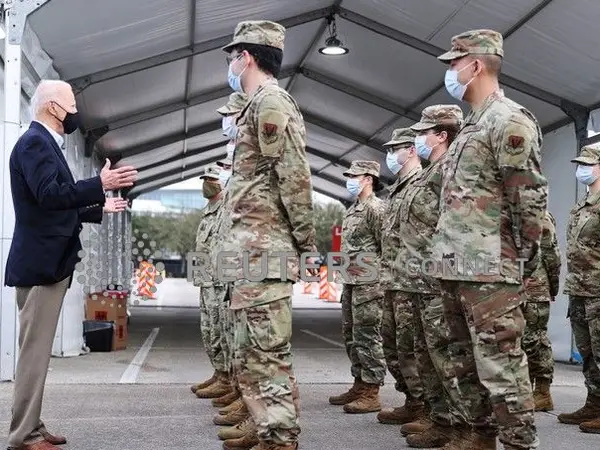US President Joe Biden ordered a series of strikes on Iranian militia in Syria “to degrade and disrupt” attacks on US forces, he told Congress on Thursday.
The first strike took place on August 23 against a facility “used by militia groups affiliated with Iran’s Islamic Revolutionary Guard Corps that have been involved in a series of unmanned aerial vehicle, rocket, and mortar attacks against United States personnel and facilities in Syria,“ Biden said in his letter.
The militia under Iranian command launched a new attack on Wednewsday and the United States had to again react, launching new strikes. The scenario repeated itself on Thursday, killing four militiamen.
Biden wrote to the leaders of the House of Representative and the US Senate "consistent with the War Powers Act“. But it he directly said this was a message to Tehran.
"I directed the August 23 strikes," Biden wrote, "to deter the Islamic Republic of Iran and Iran-backed militia groups from conducting or supporting further attacks on United States personnel and facilities."
Iranian government media and officials remained silent on Thursday, ignoring the events publicly. But on Friday, Iran’s foreign ministry spokesman Nasser Kanaani rejected President Biden’s argument that the US is responding to threats against American forces. Kanaani tweeted, “Fact: The very presence of occupier America in Syria and its transgressions against the defenders of Syria’s independence and territorial integrity is illegal and condemned.”
Knaani on Wednesday had denied any links between Iran and the militia forces in Syria, a claim few would také seriously, given Iran’s 11-year involvement in the Syrian civil war and hundreds of casualties among its forces and those of its militia.
At the same time, Biden used wording in his letter to emphasize the "discrete" and "proportionate" nature of the military action, amid highly sensitive indirect negotiations with Tehran to restoire the 2015 nuclear agreement, the JCPOA.
Iran has received the latest US response to a European Union draft proposal on bridging the remaining gaps and it announced Thursday that its experts and deecision makers are carefully examining the text.
Biden, however, faces strong domestic opposition for trying to restore the JCPOA and lift economic sanctions imposed on Iran. The attaks in Syria can help paint a picture of the President as a man ready to stand up to Tehran.
The initial incident that let to the first US strike against Iran-affiliated forces on Tuesday was an attack on US forces on August 15, the same day that Iran had responded to the EU proposal. While Iran appears serious about continuing nuclear talks, it is not clear why forces under its command in Syria would provoke the United States.
Iran’s Supreme Leader Ali Khamenei and his hardliner supporters have long called for all American forces to leave the Middle East, meaning primarily Iraq and Syria. At he same time, Washington and its allies in the region have long accused Iran of "malign activities" by organizing and supporting militant Shiite groups to carve out zones of Iranian influence all the way to the Mediterranean.
Iran’s Revolutionary Guard and its affiliated entities have been sanctioned by the United States partly for this reason, and their sanctioned status became part of the nuclear negotiations this year. The US rejected Iranian demands to remove the sanctions and Tehran appears to have backed off.
